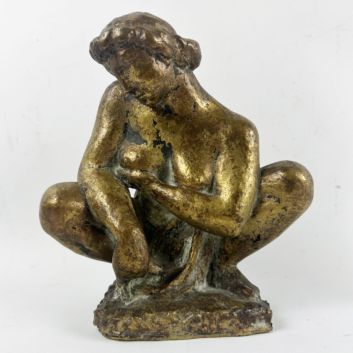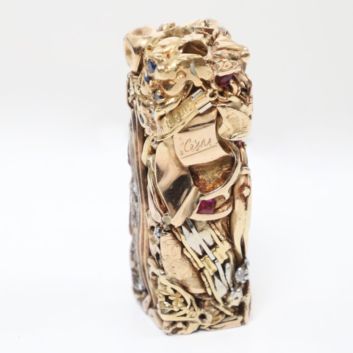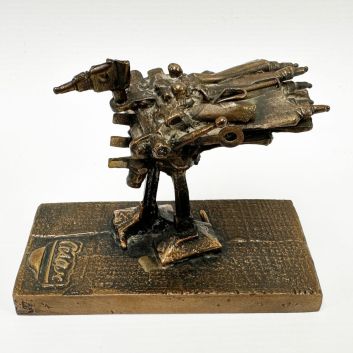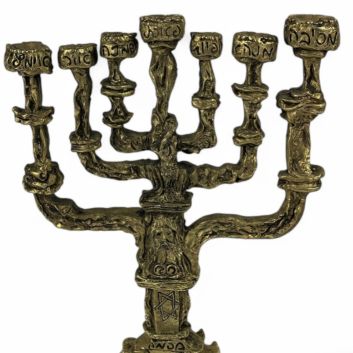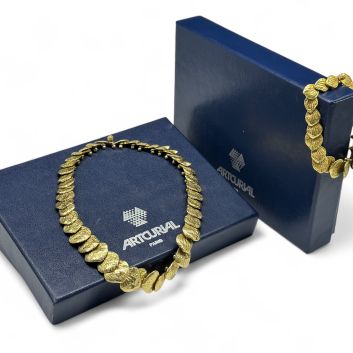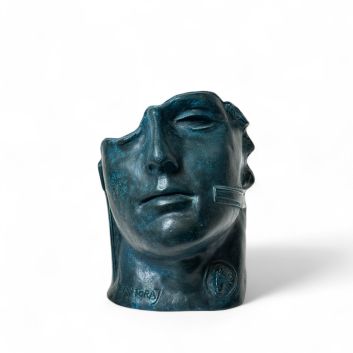Rating and value of works, sculptures, compressions by César
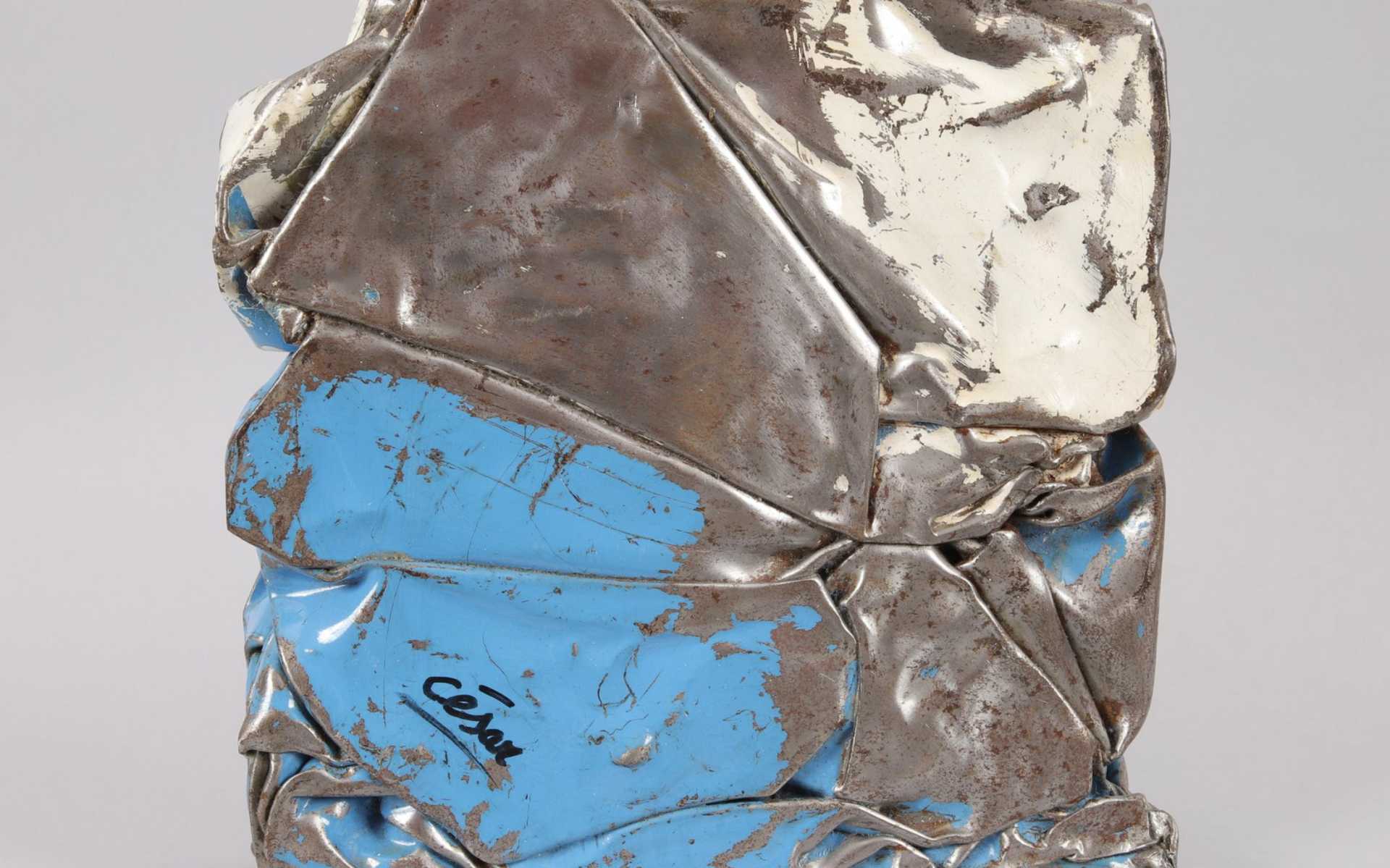
Sculpteur de fer soudé, César (1921-1998) découvre dans les années 60 une presse hydraulique dans une casse de Gennevilliers. Fasciné par son pouvoir de déformation et de transformation des objets, l'artiste se lance et réalise trois compressions hors normes de voitures.
Présentées la même année au Salon de Mai, ces œuvres intitulées "Trois Tonnes" font scandale. Pourtant, les Compressions de César deviennent des œuvres majeures dans l’Histoire de l’Art.
Si vous détenez une Compression réalisée par César ou d’après son travail et que vous souhaitez connaître sa valeur, nos experts et commissaires-priseurs agréés par l’État vous aiguilleront.
Nos spécialistes réaliseront une expertise gratuite de votre objet, et vous transmettront une estimation précise de sa valeur sur le marché actuel.
Then, if you want to sell your item, we'll point you in the right direction to get the best possible price for it.
Rating and value of Compressions César
Œuvres majeures du XXème siècle, les Compressions de César se vendent entre 200 et 291 523 € (record pour l’artiste réalisé en 2018).
Très prisées par les collectionneurs, le prix des Compressions varie en fonction de leurs tailles et matières.
Malgré la grande popularité et diversité de ces œuvres, Les Compressions réalisées à partir de carcasse de voitures sont les plus cotées.
Order of value from the most basic to the most prestigious
Compression type | Results |
|---|---|
Golden compression | From €1,300 to €20,000 |
Small compressions (>7cm) | From €350 to €34,650 |
Jewelry compression | From €287 to €38,768 |
Compressions in bronze | From €450 to €45,000 |
Compressions in metal | From €1,000 to €65,000 |
Compressing cans/plastics | From €300 to €80,000 |
Car Compressions | From €22,000 to €255,000 |
Response in less than 24h
Caesar's life and the Compressions experiment
César Baldaccini, known as César, was born in Marseille in 1921. From an early age, César was recognized as a prodigy. Endowed with an innate talent for drawing, he first studied drawing and then sculpture at the Beaux-Arts de Marseille.
L’artiste a continué ses études à Paris. César s'intéresse beaucoup à la sculpture moderne et aux œuvres de Brancusi, Picasso, Matisse et Giacometti.
He produced his first works in iron, an easy-to-handle and inexpensive material. At the time, each of César's works was unique, and he worked and welded them himself in the original material.
Les premières Compressions de César trouvent leur origine dès 1958 lorsqu'il compacte des plaques et des rubans de cuivre.
Peu de temps après, l'artiste découvre chez un ferrailleur de Gennevilliers une presse énorme utilisée pour manipuler des matériaux, capable de réduire une voiture. Cela lui donne l'idée de créer trois balles de voitures compressées, qu'il nomme de l'hyperbole "3 tonnes".
César created his Compressions in two periods. The first was from 1959 to 1970, while the second was from 1976 to 1998. His Compressions are often imbued with a sense of humor, as are his goldsmith's and crystal Compressions.
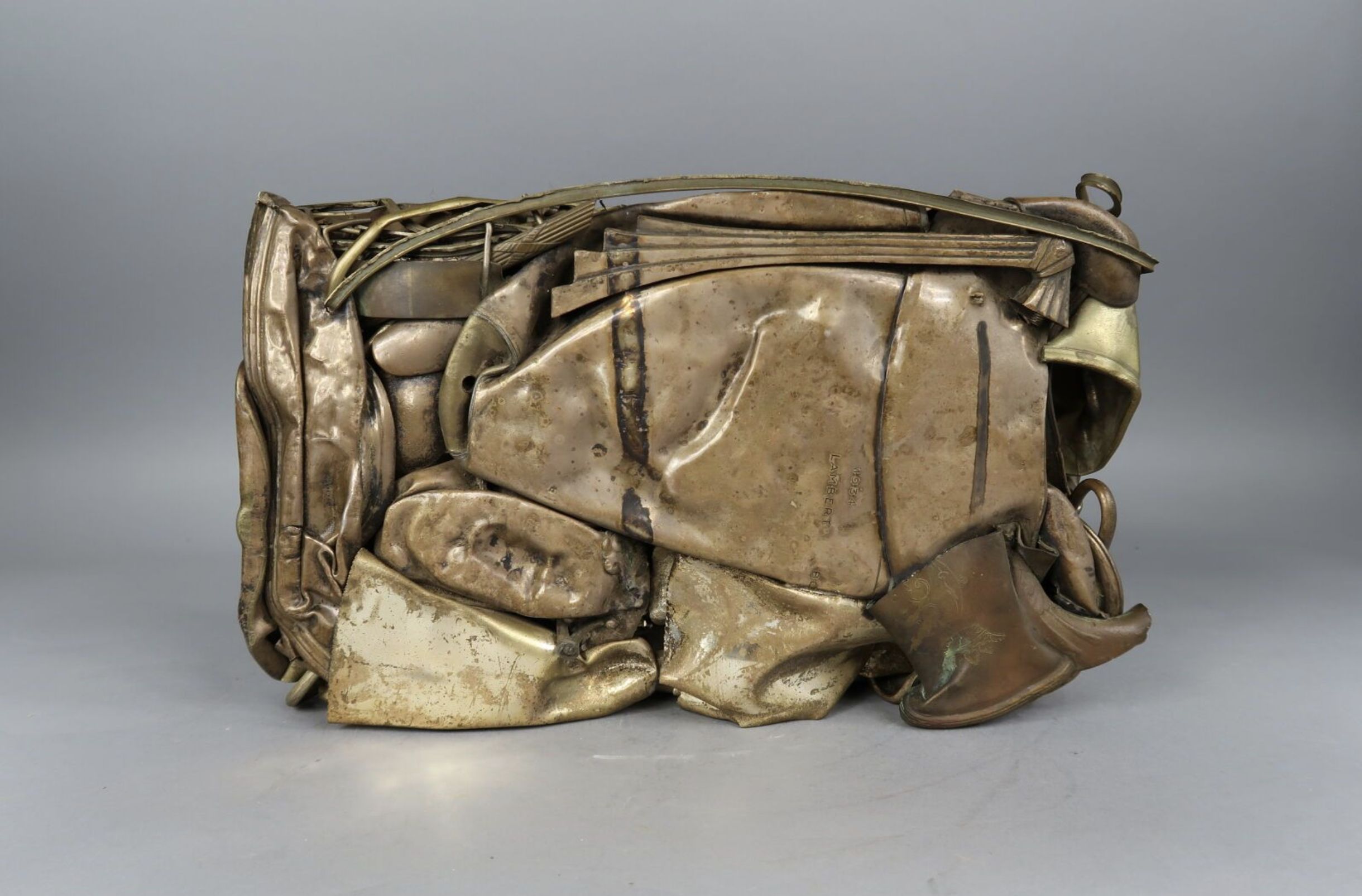
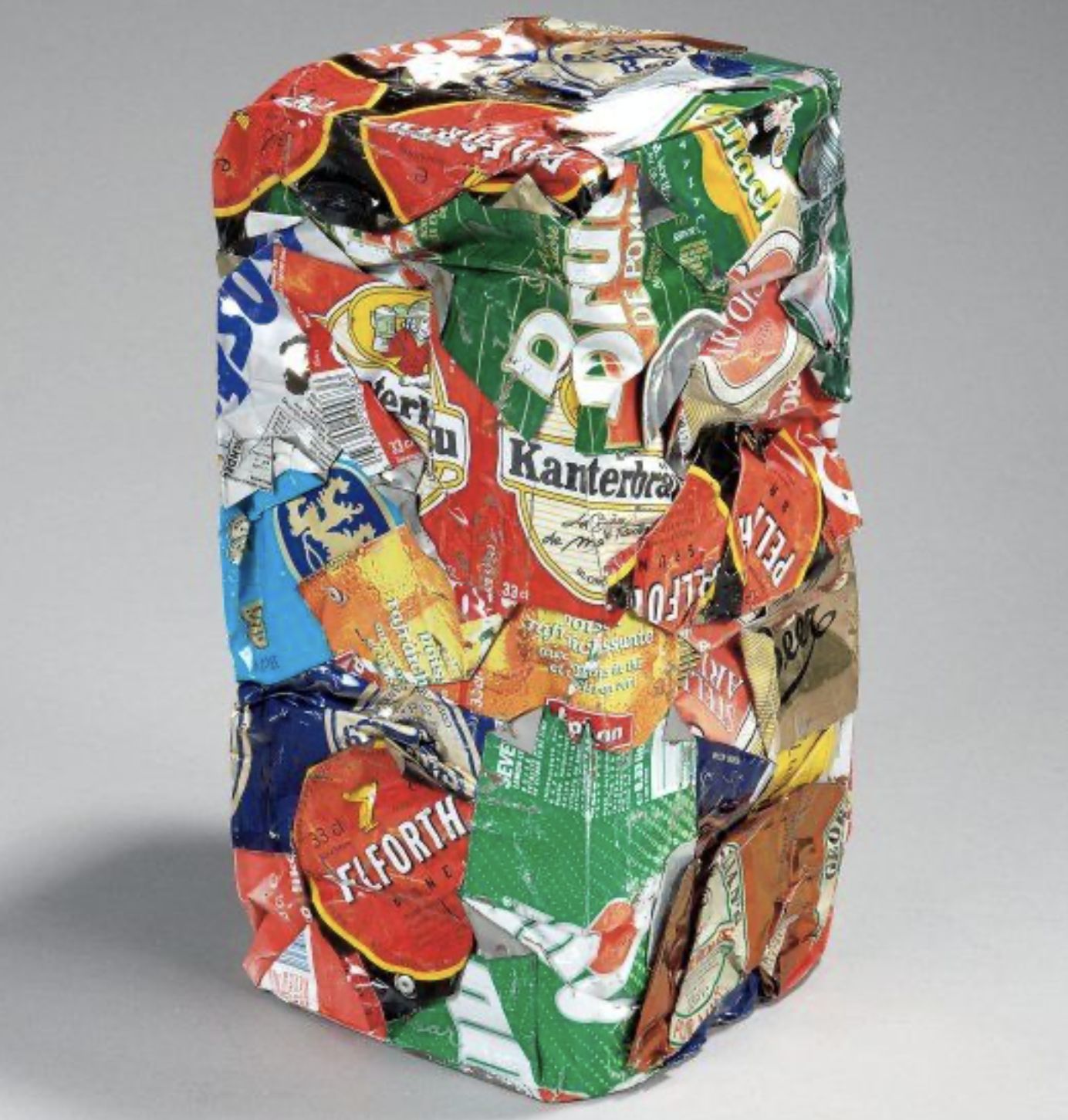
En 1961, César expérimente les Compressions dirigées. Les éléments à compresser sont soigneusement sélectionnés en fonction de leur forme et de leur couleur, puis pesés.
Certains ensembles de Compressions sont composés uniquement d'ailes de voitures, tandis que d'autres incluent une voiture noire, deux capots rouges et douze pare-chocs, par exemple. Les formes sont rectangulaires, plates ou carrées.
Later, the artist expanded his creations by adding other elements such as license plates, metal packaging and aluminum tubes. He also compresses two-wheelers.
César's early Compressions led him to join the Nouveau Réalisme movement. This group, considered eccentric, explored new perspectives in art.
Focus sur Compression de voitures, 1959
Compression de voitures est une œuvre réalisée par César et conservée au Centre Pompidou. L’artiste a littéralement compressé des carosseries automobiles par presse hydrauliques. On trouve donc comme matériaux dans cette œuvre de la tôle de voiture compressée, parfois peinte ou polychrome.
Il s’agit de la première grande compression exposée, qui marque un tournant dans la carrière de César et dans l’histoire de la sculpture contemporaine.
Cette œuvre est née de la découverte d’une presse hydraulique industrielle, César s’emparant d’un outil utilisé pour la feraille. Il ne sculpte pas au sens traditionnel du terme mais oriente, choisit et compose à partir de matériaux préexistants.
Le geste artistique réside dans le choix de véhicule, le contrôle partiel de la presse et la manière de présenter le bloc final. La compression devient un forme de ready-made transformé, entre destruction, recyclage et création.
Le volume est dense, compact, aux contours irréguliers et chaotiques, avec une accumulation de tôles déformées, éclatées et vrillées. La surface métallique est parfois brillante, parfois oxydée, qui laisse voir des traces de peinture, de chromes ou de phares éclatés.
La matière industrielle est détournée vers une esthétique brute et violente, mais paradoxalement harmonieuse. Il n’y a pas de base ou de socle, l’objet s’affirme comme monument sculptural autonome, porteur d’une force brute.
La portée conceptuelle renverse le statut de sculpture, et de forme créé par compression et non par addition. Il dénonce la société de consommation et la production de masse, tout en s’en nourissant plastiquement. L’œuvre devient donc métaphore de l’accident, de l’usure et de la fin de l’objet.
Il s’agit également d’un acte de transmutation : la feraille devient art, par une opération à la fois mécanique et conceptuelle. César lie matériaux pauvres et culture industrielle à une nouvelle poétique du contemporain.
Cettte œuvre a d’abord été perçue comme scandaleuse ou provocatrice, puis a ensuite été reconnue comme fondatrice du Nouveau Réalisme. Elle anticipe des réflexions sur le recyclage, la critique de la modernité et l’effacement de la main de l’artiste.
Cette œuvre exerce également une influence sur l’Arte Povera, et certains gestes performatifs des années 1970. César réitérera ce principe à de nombreuses reprises en le déclinant avec des métaux précieux, des matériaux plastiques, ou encore en variant les échelles.
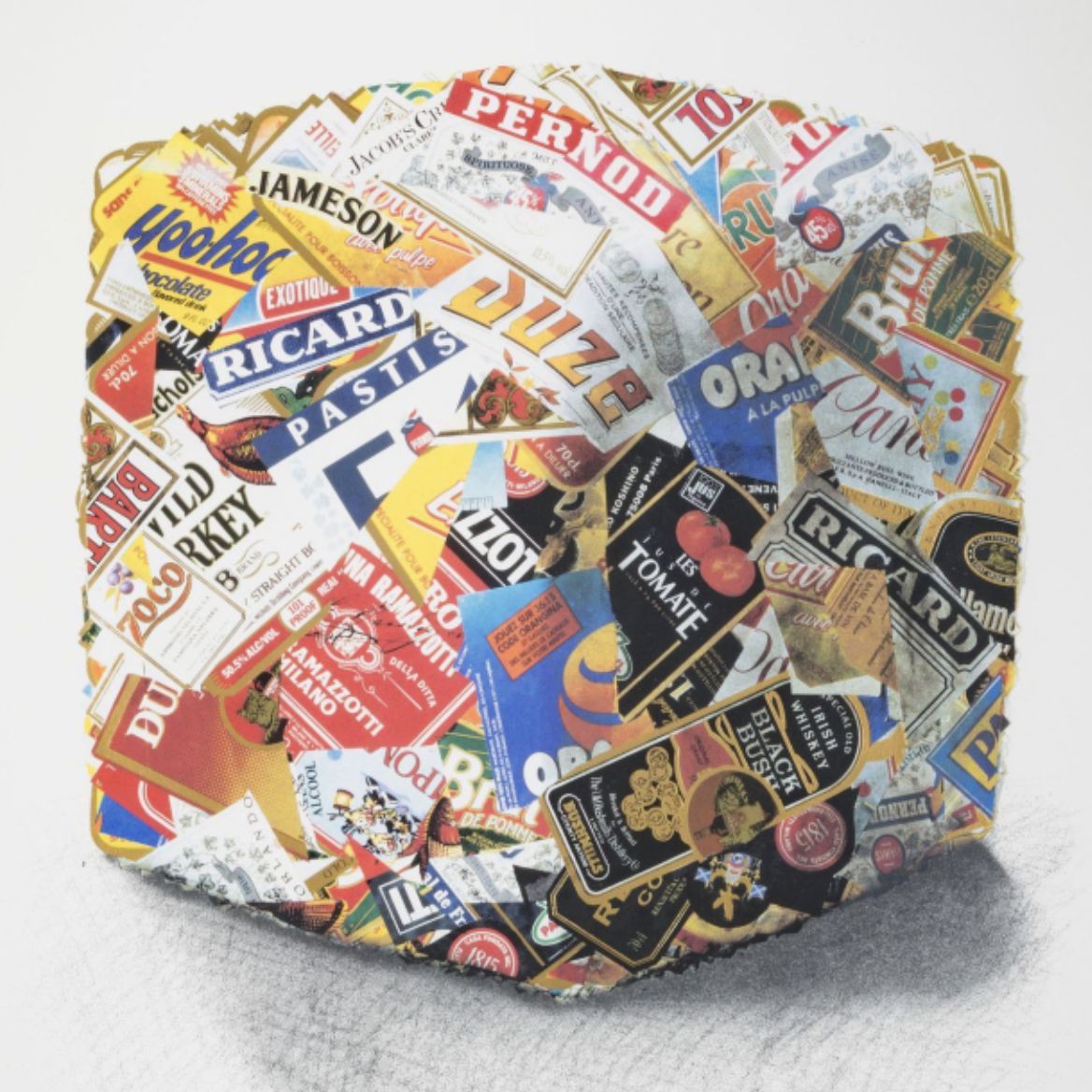
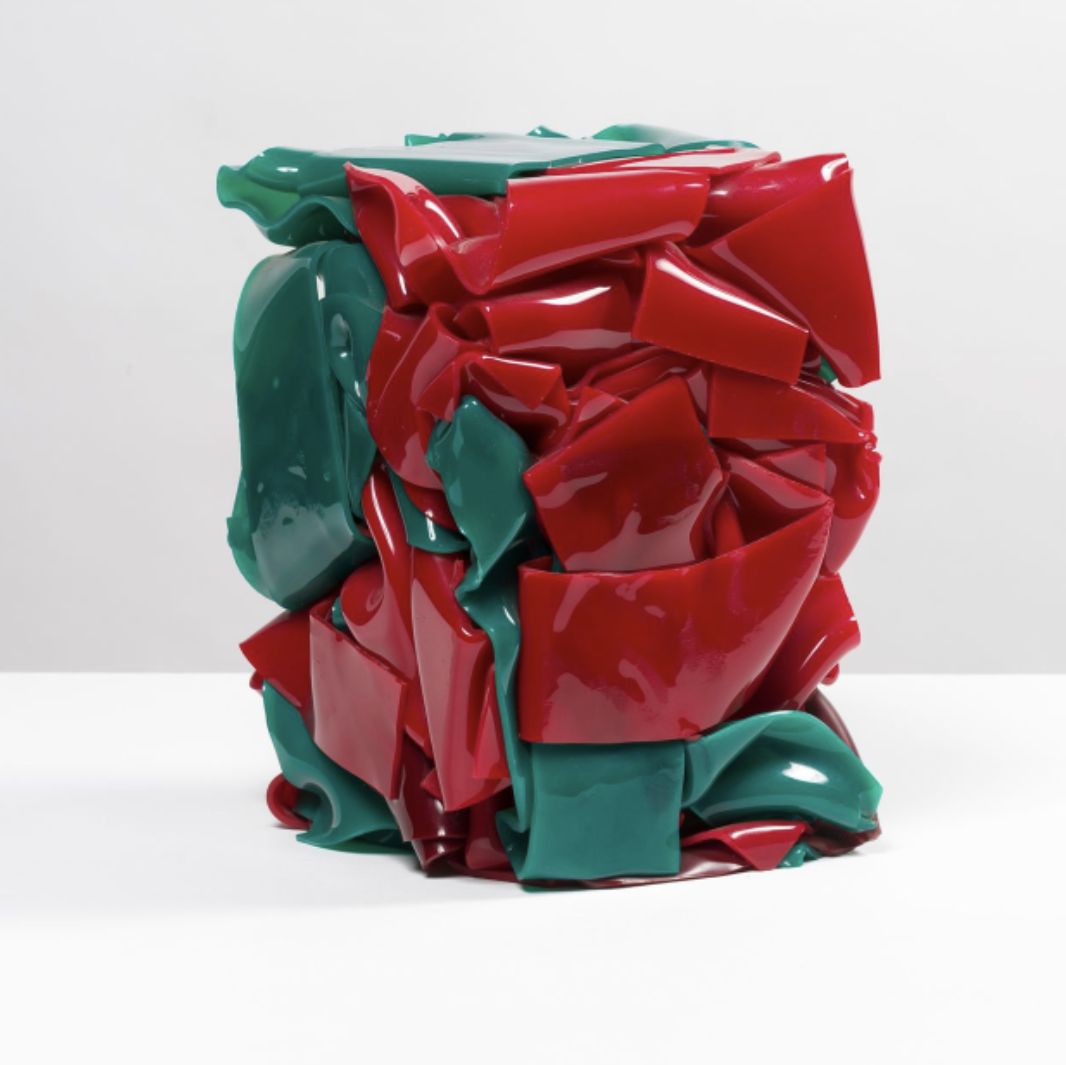
His signature
Not all of César's works are signed.
Although there are variations, here's a first example of his signature:
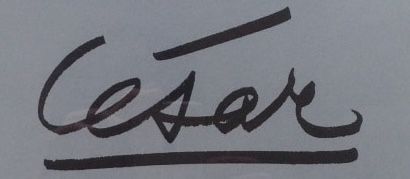
Appraising your property
Si vous êtes propriétaire d'une Compression de César, n'hésitez pas à solliciter une évaluation gratuite en remplissant notre formulaire en ligne.
Un membre de notre équipe, composée d'experts et de commissaires-priseurs agréés, vous contactera pour vous fournir une estimation de la valeur marchande de votre Compression signée César.
If you are considering selling your work, our specialists will also guide you through the various alternatives available to obtain the best possible price, taking into account market trends and the specific features of each work.
Response in less than 24h
Related topics
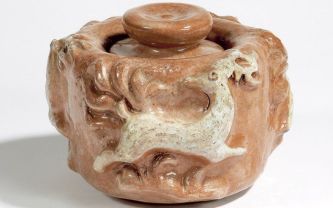
Rating and value of ceramics, sculptures and vases by Georges...
Georges Jouve is a ceramist and sculptor prized at auction, with a high, stable market value. His works sell for high prices.
Read more >

Cote et valeur 2024 des tableaux, dessins, peintures de Lala...
Lalan is a Chinese artist who has produced abstract paintings that are highly rated and valued at auction. Estimated in 24h.
Read more >

Cote et valeur 2024 des tableaux, dessins, peintures de Jean...
Jean Gaston Mantel is a French Orientalist painter whose works are highly regarded and valued at auction.
Read more >
Secure site, anonymity preserved
State-approved auctioneer and expert
Free, certified estimates
